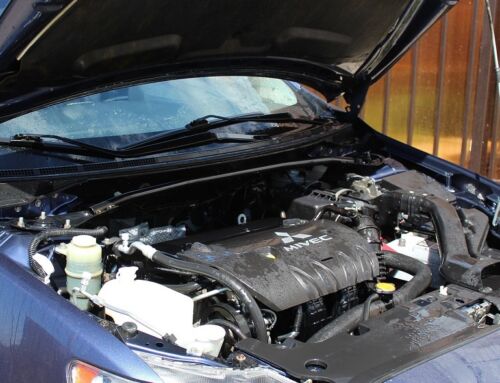In the recent case of Schmidt v. Allstate Property and Casualty Company the Indiana Court of Appeals said that not only can a passenger make a claim against the driver’s insurance company, but they can sue the auto insurance for BAD FAITH if they are unreasonable (which they almost always are). This means that a passenger in a car crash case can make a claim against their driver’s insurance company.
Here is a Summary of the Case.
In Indiana, passengers in an auto accident can now make a bad faith claim against the insurance company of the driver. Prior to the case Schmidt v. Allstate Property and Casualty Company * this was not the case.
This case involved an auto accident where Monika Schmidt was a passenger in a car driven by Deborah Fisher, an Allstate policy holder. Schmidt was injured as a result of the accident, and under the policy held by Fisher, made a claim through Allstate regarding her injuries.
Schmidt, under the terms of the Allstate Policy held by Fisher, is defined as an “insured person”. Under that policy, and insured person is, “any person while in, on, getting into or out of, or getting on or off an insured auto with your permission.” The policy also states that, “Allstate will pay damages which an insured person is legally entitled to recover from the owner or operator of an uninsured auto because of… bodily injury that is sustained by an insured person that is caused by accident and arises out of the ownership, maintenance, or use of an uninsured auto.” Schmidt then sued Fisher under the terms of the policy and claimed Allstate did not act in good faith regarding the policy that Schmidt was covered under.
The trial court granted summary judgement for Allstate, but the appellate court overturned summary judgement and remanded the case for further proceedings on Schmidt’s bad faith claim against Allstate.
The issue at hand was whether Schmidt could sue the insurance company for failing to act in good faith even though Fisher was the actual policy holder.
The appellate court used a three-step test set out in the case Webb v. Jarvis. The three steps in determining whether a breach of a good faith duty in an insurance contract has occurred are:
- The relationship between the parties,
- The reasonably foreseeability of harm to the person injured, and
- Public policy concern
Prior cases held that the insurer owed a good faith duty to only the policy holder because the insurer and the policy holder had a “special relationship” which did not exist between the insurer and a passenger who was not a party to the insurance contract.
The appellate court here held that because Schmidt was an insured person as defined by the Allstate policy, she had a first party relationship with Allstate. Due to her injuries, the court stated that it would be reasonably foreseeable that Schmidt would be harmed if the insurer did not honor her valid claim. Concerning public policy, the appellate court cited Indiana Code Section 27-4-1-4.5 which details unfair claims settlement practices and remedies for those affected. The statute does not differentiate between policy holders and additional insured persons.
The court here stated that when a passenger has a first party relationship with the insurer, and the harm to the passenger if their claim is not honored is reasonably foreseeable, then the insured may sue the insurer for a breach of a good faith duty owed to the insured.
Passengers in Indiana now have a right to make a claim of bad faith against a driver’s insurance company if they have a claim that has not been negotiated or honored in good faith, and if the harm to the passenger is reasonably foreseeable if their claim is not honored or negotiated.
What does this mean for people traveling as Passengers?
Simply put it means, “YOUR’E COVERED!” if you have been a crash and are riding as a passenger, then you can make a claim against the at fault party and if for some reason the driver of the other car does not have insurance or enough insurance then you can make a claim against your driver’s insurance policy. Now that has always been the case in Indiana, however, now Passengers can make BAD FAITH Claims as well. A Bad Faith claim is a case against an Insurer where their insured is claiming that the insurance company acted poorly or in bad faith and mishandled the claim. Sometimes, insurance companies commit out right fraud!
The Auto Insurance Companies used to argue that a passenger is not a “Named insured” (a.k.a. not on the insurance policy) and because of that there is no “privity of contract” (which is just a fancy way of saying that the passenger never had a contract or insurance policy with the passenger). Without “privity of contract” you cannot make a Bad Faith Claim against the insurance company. However, that has now changed in Indiana and the Law now sates that you CAN make a Bad Faith claim against the auto insurance even if you are not on the policy!
Have you been denied insurance coverage?
The Indianapolis car accident lawyers at Hurst Limontes LLC has years of experience fighting for and recovering for our clients who are being treated unfairly by the insurance company. We have tried cases and won against insurers! Contact us or call at 317-636-0808 for a free consultation. We will not charge our client’s anything unless we can recover for you.






